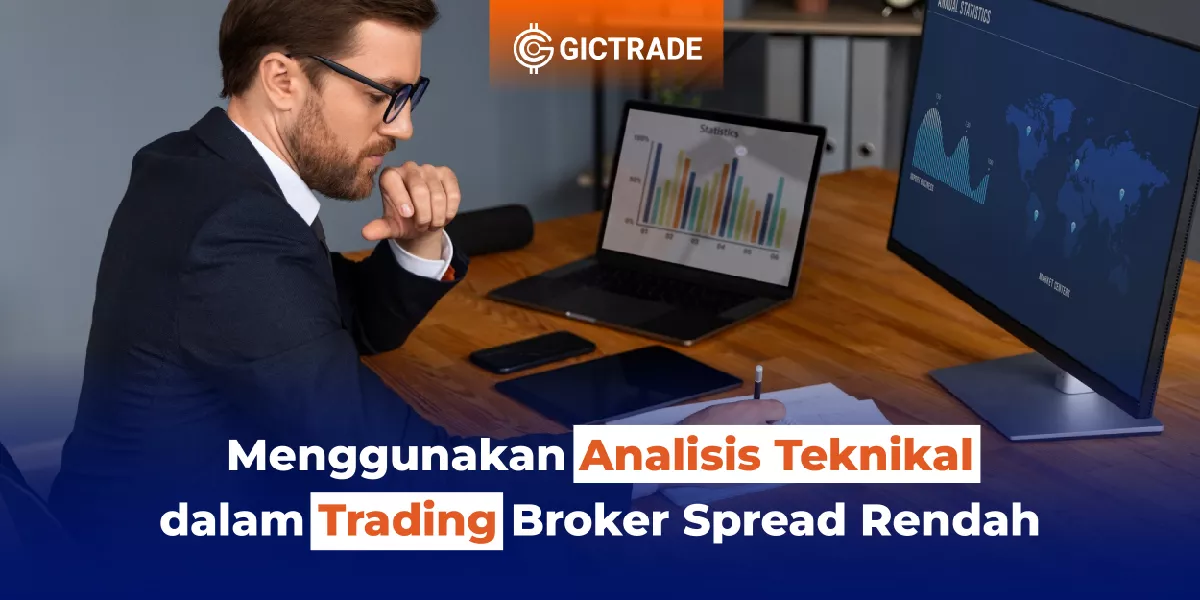Terms and Conditions of Low Spread Brokers - In the world of financial trading, many factors must be considered before choosing a broker. One important factor is the spread, which is the difference between the buying (bid) and selling (ask) prices of a financial asset.
Low spread brokers are favored by many traders because they can reduce trading costs. However, before you decide to invest with such a broker, you need to understand their terms and conditions thoroughly.
This article will detail the terms and conditions of low spread brokers so you can make informed investment decisions.
Table of Contents

Apa Itu Broker Spread Rendah? What Are Low Spread Brokers?
Before we discuss the terms and conditions, it's important to understand what low spread brokers are. Low spread brokers are brokers that offer small spreads, meaning the difference between the buying and selling prices is minimal. This allows you to trade with lower costs, as there isn't a significant price gap you need to pay.
General Terms and Condiitons
Here are some general terms and conditions you should be aware of when choosing a low spread broker:
1. Minimum Deposit Amount
Most low spread brokers have minimum deposit requirements. You need to ensure that you have sufficient funds to meet these requirements before opening an account.
2. Types of Available Assets
Ensure that the low spread broker you choose offers the assets you want to trade. Some brokers may have low spreads for certain currency pairs, while others may offer low spreads for various types of assets, including stocks, commodities, and indices.
3. Fixed or Floating Spread
Low spread brokers may offer either fixed or floating spreads. A fixed spread is when the price difference remains constant, while a floating spread can fluctuate based on market conditions. You need to understand the type of spread offered by your broker.
4. Additional Commissions
Some low spread brokers may charge additional commissions beyond the spread. Make sure you understand all costs associated with your trading.
Others Factors to Consider
In addition to the terms and conditions mentioned above, there are several other factors to consider when choosing a low spread broker:
1. Broker Reliability
Ensure that the broker has a good reputation and has been in operation for a long time. You want to ensure that your funds are safe and that you can rely on the broker.
2. Trading Platform
Choose a broker that provides a user-friendly trading platform that meets your needs. A good platform will make it easier for you to analyze and execute trades.
3. Customer Service
Also, consider the customer service offered by the broker. You may need assistance from time to time, so make sure the broker has a responsive support team.
Conclusion
Choosing a low spread broker is an important step in your trading journey. You should thoroughly understand the terms and conditions and consider other factors such as broker reliability and trading platform. By making wise choices, you can optimize your profit potential in financial trading.
Frequently Asked Questions (FAQs)
1. Are all low spread brokers the same?
No, each broker can have different terms and conditions. It’s important to research and compare brokers before deciding.
2. What is a floating spread
A floating spread is a spread that can fluctuate depending on market conditions. This can be advantageous if the market experiences low volatility.
3. What is the typical minimum deposit required by low spread brokers?
Minimum deposits can vary from broker to broker but typically range from $100 to $500 or more.
4. Are low spread brokers better than other brokers?
There’s no definitive answer, as it depends on individual preferences and needs. Low spread brokers are suitable for those looking to reduce trading costs.
5. How can i check a broker's reputation?
You can check a broker's reputation by reading reviews from other traders, verifying if the broker has a valid license, and looking into its operational history.
 Last:
Last: 







